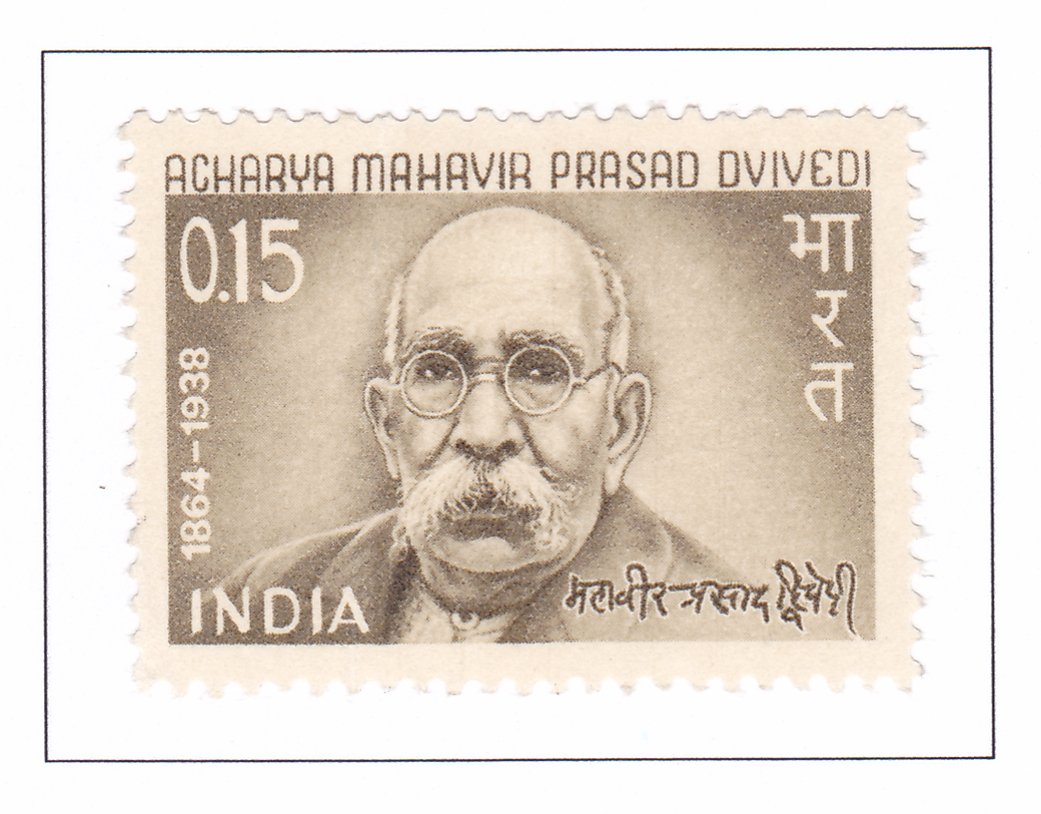Acharya Mahavir Prasad Dvivedi 1864-1938

Technical Data
| Date of Issue | May 15, 1966 |
|---|---|
| Denomination | INR 0.15 |
| Quantity | 2,000,000 |
| Themes | Authors | Commemoration | Famous people | Literary People (Poets and Writers) | Literature | Men | Optical Instruments |
Acharya Mahavir Prasad Dvivedi, born on May 15, 1864, in the village of Daulatpur, Uttar Pradesh, left an indelible mark on Hindi literature and language. Despite the hardships of his upbringing, he pursued education with fervor, mastering Urdu, Persian, Sanskrit, Hindi, and English.
Dvivedi’s passion for language and literature led him to leave his railway job and immerse himself in the literary world, where he became a prominent figure as a critic, poet, and prose writer. He played a pivotal role in liberating Hindi poetry from the constraints of Brij Bhasha, infusing it with a newfound ease and lucidity.
For nearly two decades, Dvivedi served as the editor of the monthly journal “Saraswati,” which became a beacon of enlightenment for the literary community. His influence extended beyond his contemporaries, inspiring later poets and writers like Maithili Saran Gupta, Kashi Prasad Jayaswal, and Ganesh Shankar Vidyarthi.
Dvivedi pioneered the modern school of literary criticism in Hindi, laying the groundwork for future scholars like Pandit Ram Chandra Shukla. His vast body of work encompassed essays on diverse topics, translations of Sanskrit classics, and philosophical works by Western authors like Bacon and Spencer.
His translations of works like Kumarasambhava, Raghuvamsa, and the Mahabharata into Hindi marked significant milestones in literary history. His prose writings, comprising over sixty books, blazed a trail in modern Hindi literature, shaping its trajectory for generations to come.
Acharya Mahavir Prasad Dvivedi’s contributions to Hindi literature remain invaluable. His legacy lives on through his profound influence on the language and the literary landscape of India. In honor of his memory and his enduring impact, the Indian Posts and Telegraphs Department issues a special postage stamp commemorating his remarkable life and achievements.
